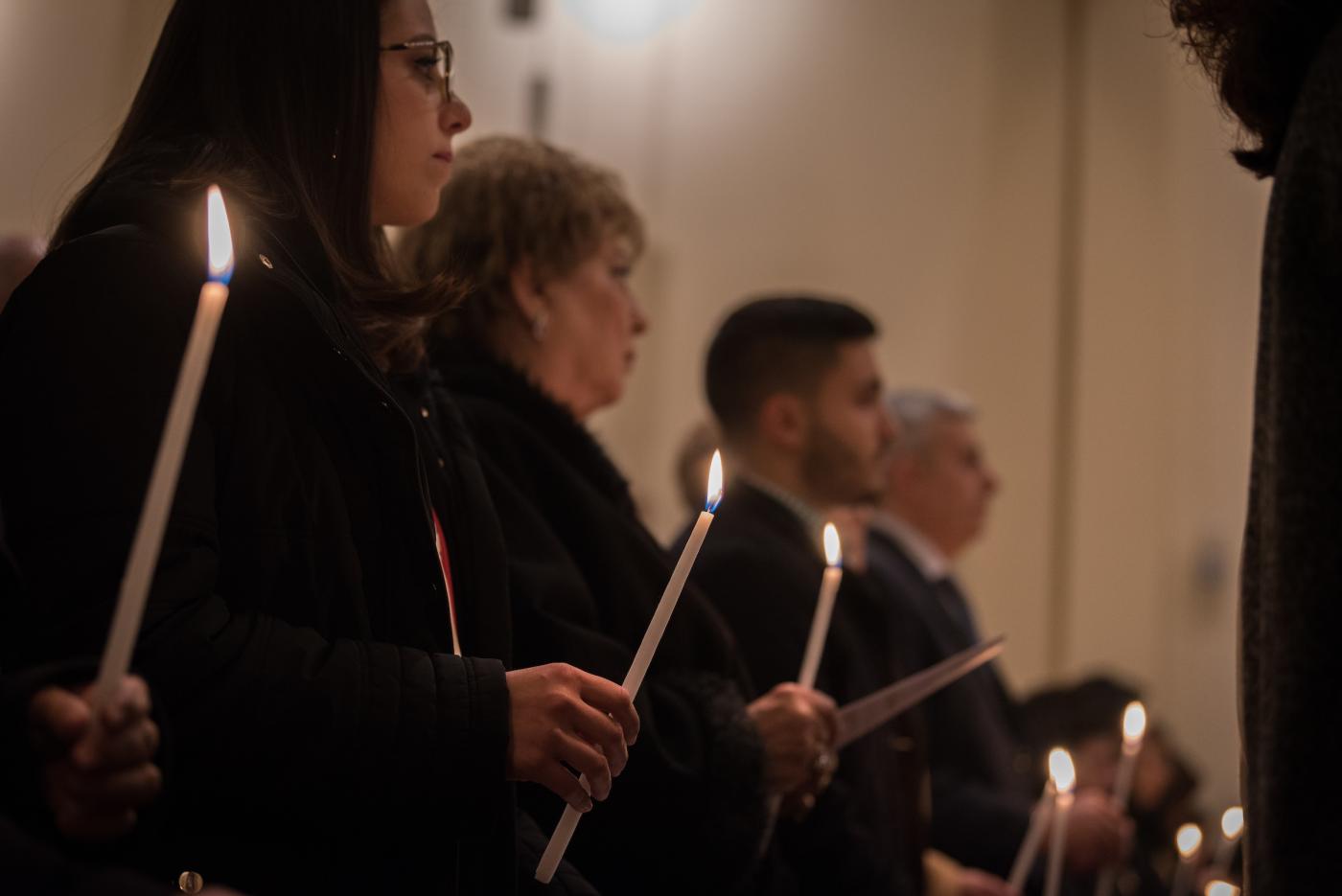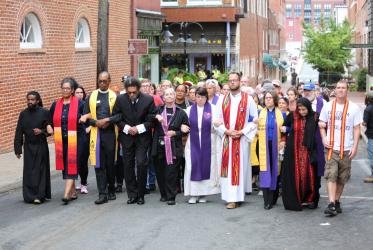Rev. Karin van den Broeke, World Council of Churches (WCC) executive committee member who moderated the webinar, explained that the series of conversations on past massacres aims to discuss the importance of healing of memories.
"When it comes to Europe, many people immediately think of the Holocaust: deep dark pages in our past, with consequences to now,” she said. “Or we think of Armenia.”
But in addition to the more visible massacres, there are less heard-about massacres that are tragic, said Van den Broeke.
“Some of the massacres we will be hearing about today are forgotten, some have fallen into the world’s amnesia, others are little known to other contexts,” she said.
Presenting about Northern Ireland, Dr Geraldine Smyth offered a video and reflection on a massacre that occurred in 1971 in Ballymurphy, West Belfast. Five months later, more innocent people were shot dead in Derry during an event later known as Bloody Sunday.
“Unless we understand the past, we will be condemned to repeat it” Smith underlined.”To understand any one atrocity or massacre, one needs to understand that the policy of the British in Ireland was to contain violence. Violence was never overcome or resolved because its root causes were never engaged."
She later added: “In Ireland, our religious self understanding has been politicised, and our politics sacralised.”
Rev. Assoc. Prof. Habil. Cristian Sonea, from Romania, spoke about the genocide in Romania that stretched for years. "So what is genocide in this context?” he asked, and reflected on the policy of extermination. “According to the report the calculations are around two million people passed through prisons, camps and other places of detention and deportation,” he said.
Eugenia Koukoura, in a video presentation, showed how Nazi German soldiers massacred villages in Greece, and that no one was held accountable. “In total 693 civilians were killed by the Nazis in Kalavryta,” she said. “These massacres occurred during the Second World War but many of them are less known.”
Rev. Prof. Dr Konrad Raiser, former WCC general secretary, brought insights on the role of healing of memories.
“The memory of past massacres is, first of all, an intensely personal one,” he said. "One of the important elements in initiating such a process of healing is to render to the victims their names and thus to rescue them from oblivion. The loss of life can never be repaid in material terms.”
Segma Asfaw, WCC programme executive, informed the audience that the webinar was the end of the series in which speakers examined past events that have mutilated both bodies and souls, and have shown us that all regions have forgotten and unspoken wounds. “Trauma is inter-generational unless it is acknowledged, remembered, and healed,” she said. “Truth-telling is about finding closure, and to have space for proper mourning, to achieve personal and communal healing. Healing of memories is a vocation of churches, because as Christians, we are called to be disciples of healing.”
The webinar was the last one of a series of regional webinars organised by the WCC Commission of the Churches on International Affairs in collaboration with the WCC Spiritual Life. It is part of many virtual events organised this year to mark the 75th anniversary of the Commission of the Churches on International Affairs.







